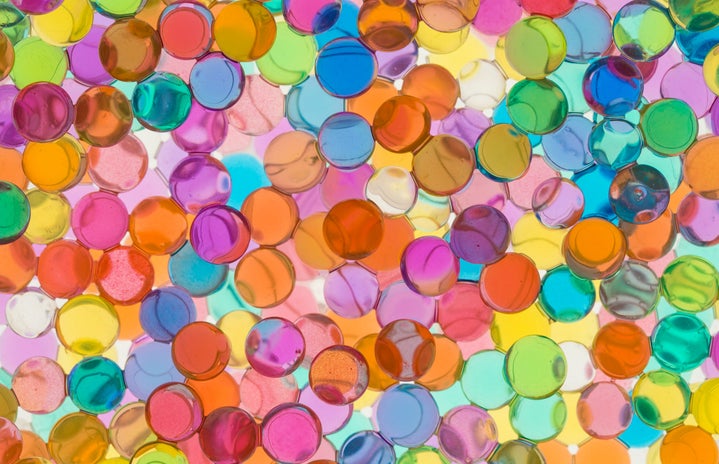I think it’s safe to say that many of us tend to hold ourselves to higher standards than we hold those around us. As such, we are our own worst critic, our own unwavering devil’s advocate. And while to an extent this can be a good thing—a means of holding oneself accountable and a means of motivation—there does come a point when it is too much. I’m sure we’ve all heard before that we shouldn’t be so hard on ourselves, and that we ought to show ourselves the same kindness and understanding that we’d show others. I’m equally sure that we’ve all, at some point or another, heard that and completely brushed it off. I know that I’m especially guilty of this. Maybe this behavior is fueled by trauma from past interactions with others, or maybe you have your own inner antagonist reminding you of all that you consider a fault.
The truth is, I’ve tried to write and rewrite this article before I was even consciously writing it. Because it isn’t just an article, not really at least. I feel like the internet is so saturated now with content about mental health and how things get better and how you too can be a success if only you do yoga or drink green juices, and how yes, you can recover and be neurotypical and heck if there are naysayers, you are your own cheerleader! To be honest, I’m a little sick of it. Don’t get me wrong—I think everyone’s story is valuable, and I by no means intend on discounting anyone’s journey. What I’m sick of is people commodifying their journey and playing it off as some romantic story of how they learned to love themselves without actually talking about the raw truth of the process. Sure, it may contain a gritty detail here or there, but it hardly goes into depth with the fact that there are innumerable set-backs and ups-and-downs.
Mental health is messy.
Mental illness is not an overnight issue that can be solved with just facemasks and a couple of affirmations, or by reading someone else’s story about it. Mental health and illness treatment is an ongoing, dynamic, and often life-long process. Having depression doesn’t mean you are sad all the time or constantly in a bad place. Anxiety doesn’t mean that you’re always incapable of putting your hand up in class or painfully shy. You can’t drink your mental illnesses away with kombucha, or eat them away with the latest organic health food trend. Yes, a healthy diet and exercise helps, but it is by no means the penultimate solution. Neither is medication. There is no “vicks” for mental health and mental illness. It took me a long time to realize this, and even longer to stop being so hard on myself when I read about other people’s journey and recovery and could not understand why I hadn’t reached the same point. Having a “bad day” isn’t the end of the world or a definitive marker in your journey. Having a “bad day” is a part of your journey; you might have many of them, you might have very few. No matter how many, having a bad day does not discount the days that came before it or dampen the days that will come after. It doesn’t mean that you’re failing, and it certainly doesn’t mean that you have to berate yourself for being less than what you expected of yourself for that day.
I think that the most important lesson I’ve learned on my mental health journey is to be kind to myself. Bare with me, I know that this is far from easy. Like I said before, many of us have our own inner antagonist. Being kind to myself, I’ve come to realize, isn’t about always pushing myself to eat the healthiest meals or to always force myself to do something that I don’t necessarily want to do, but know is good for me to do either way (like going to the gym). Being kind to myself, and being kind to oneself in general, is sometimes about giving yourself the extra time in bed to revel in the feeling of the sheets surrounding you in those quiet moments before the day begins. Sometimes, it’s letting yourself take a break without berating yourself. It’s eating your favourite food, or watching your favourite movie. It’s making yourself take a shower, especially when you feel like you can’t possibly get out of bed because the weight of the world is holding you there. But sometimes, none of that is possible. Being kind to yourself can seem like an impossible task, because to be kind to oneself is to show that same kindness to the parts of oneself that we are most unhappy with, and perhaps even the most angry with. Kindness in the face of anger is never an easy thing. It is, however, a necessary thing.
Something that I’ve found helpful on days that I can’t be kind to myself is to imagine that I am instead being kind to a friend or to someone else I love. The unkind things I tell myself and say to myself are things that I likely wouldn’t ever say to someone else. Reminding myself of that, and catching myself when I am being internally cruel by trying to imagine how those actions would make someone else feel help me remember to be kind to myself. Indeed, it is easier to be impossibly critical of oneself than it is to be of those we truly care about. The most important thing to remember though is that no one’s journey is yours. There is a time for everything, and for everyone; it cannot be rushed and you shouldn’t berate yourself or tell yourself that you aren’t trying hard enough because you aren’t at the same point in your journey as someone else is in theirs.
Show yourself some kindness. More than that, try to show yourself the same kindness you’d show someone else in need of it.



